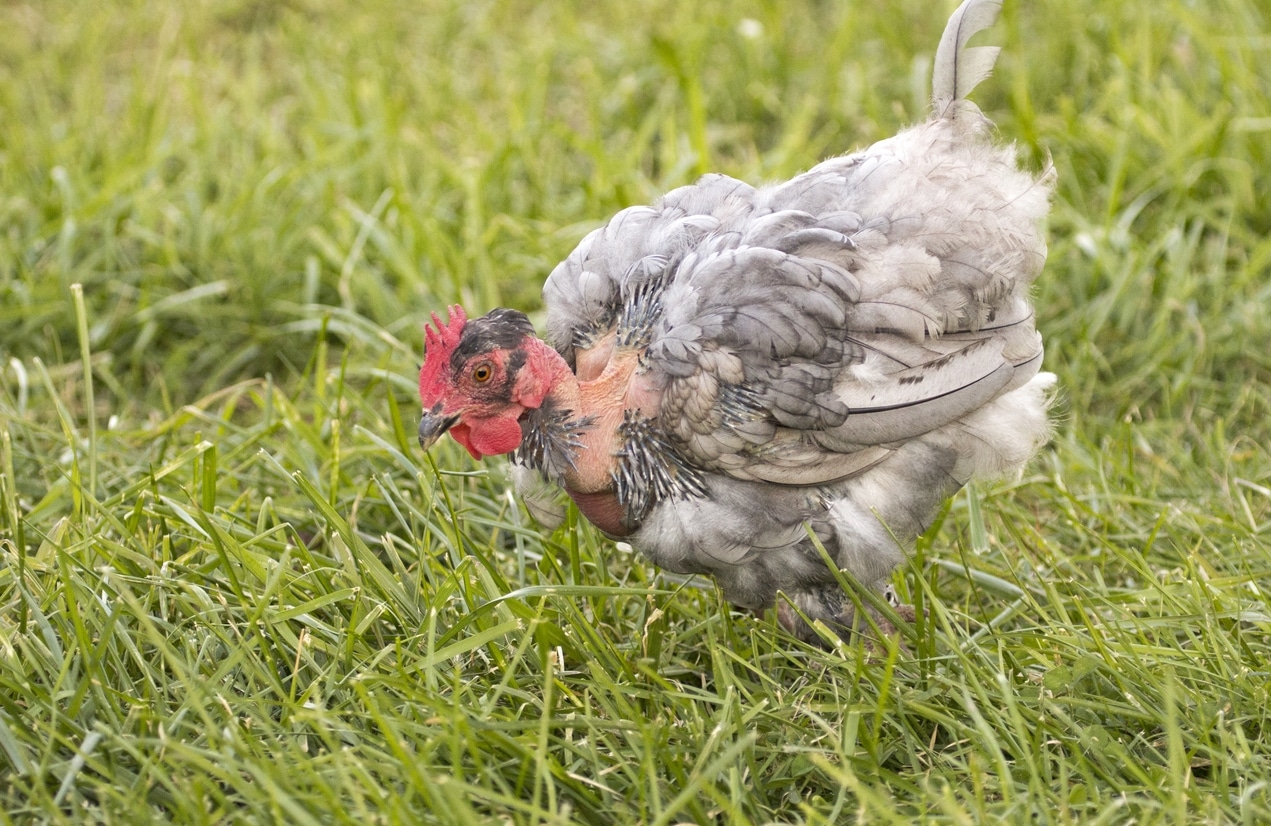If your chickens are molting for the first time, you might be confused and concerned. Molting looks painful and unnatural, but it’s a common part of a chicken’s life.
To help keepers understand molting chickens, this article will cover the reasons for molting and how you can help your chickens be more comfortable.
What Does Molting Mean?
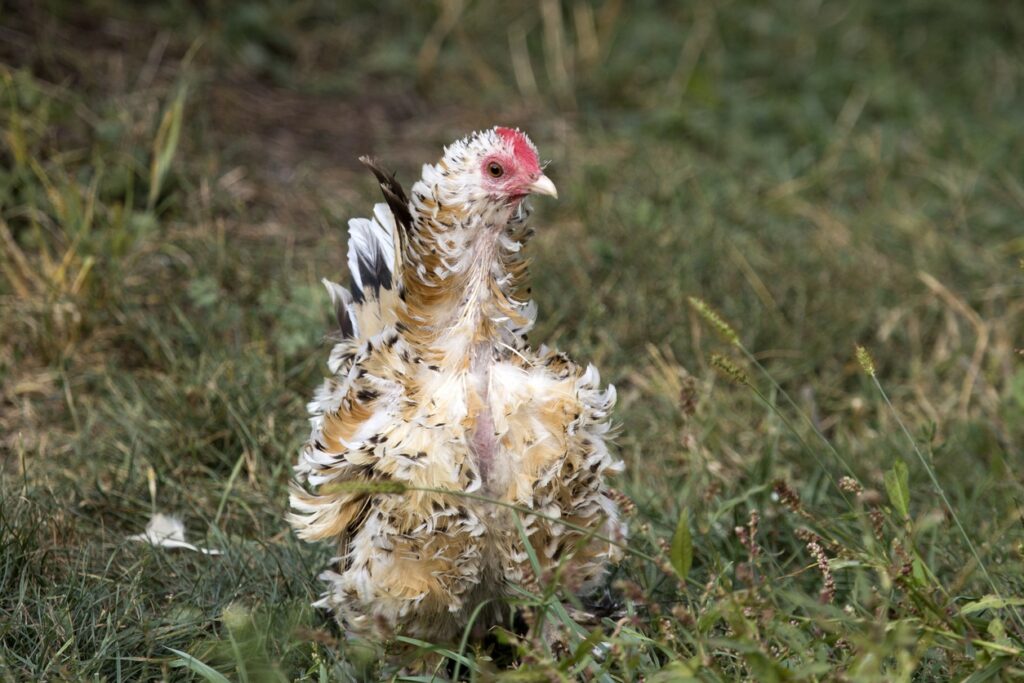
Molting is when birds shed their old feathers to grow new ones. For chickens, it’s usually when they grow warmer feathers for the winter. In most cases, chickens stop laying eggs while molting to build up extra nutrients.
While molting, chickens will have patches of missing feathers and some might even look bald. At first, this appearance might look uncomfortable for the chickens, but healthy feathers will grow back. Molting isn’t behavior to worry about since most chickens go through it every year.
Do Rooster Molt?
Yes, roosters molt. Molting is a normal behavior for most birds, so roosters aren’t an exception. They usually molt their feathers around the same time as hens do.
Can You Stop Chickens from Molting?
No, you can’t stop chickens from molting, and you shouldn’t want to. Molting is a natural way for chickens to remove damaged feathers and grow back healthier ones. So, even though it affects their egg-laying, it keeps them healthier and safer.
When Do Chickens Molt?
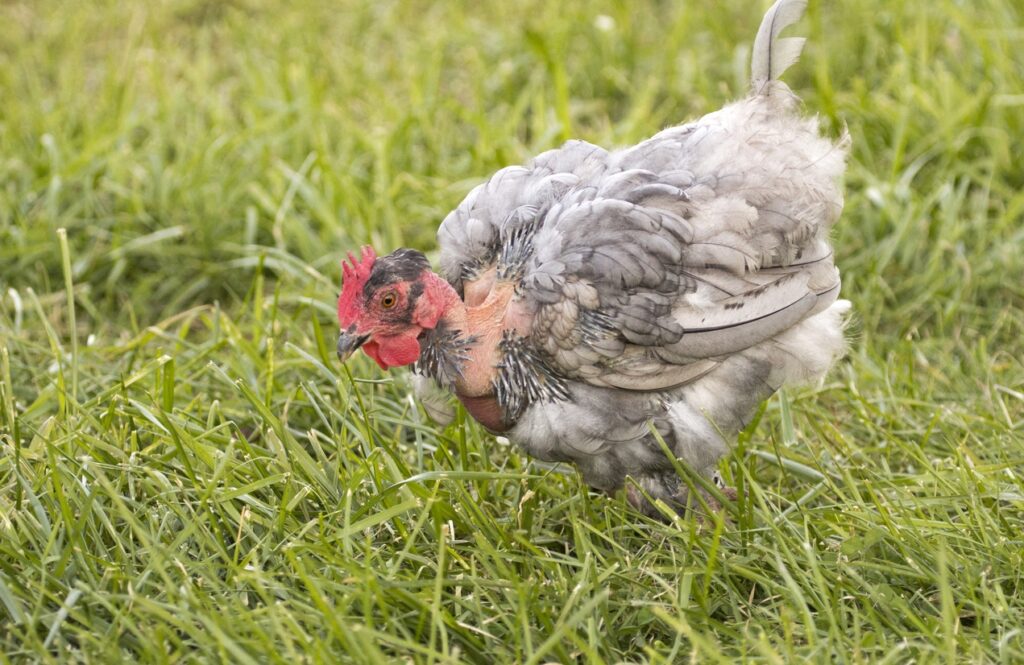
Chicken molting usually occurs in the early fall season. It gives chickens a chance to lose their old feathers and gain thicker feathers before cold temperatures come around.
Chickens might not molt at all while they’re a pullet. Usually, a chicken’s first molt will occur at about 18 months old, but then they’ll likely molt annually after that. They will continue losing their feathers for about eight weeks, and then it might take them up to 16 weeks to grow all their feathers back.
When chickens molt and for how long will vary based on breed. Some chickens can finish molting in as little as three weeks. After molting, some hens stop laying eggs for the winter while certain breeds continue to lay eggs year-round.
Why Don’t Hens Lay Eggs While Molting?
Molting can be stressful and exhausting for hens, so that’s why they stop laying eggs. They need lots of protein to grow new feathers, but laying eggs also requires protein. So, by pausing their egg-laying, it’s easier for them to gather protein for their feathers.
In most cases, hens’ molting signifies the end of their laying cycle for the year. Then, when they start laying eggs again, that’s a new year of egg-laying. Most hens don’t start laying again unless there’s enough daylight. So, that’s why many breeds stop laying eggs throughout the entire winter.
Why Do Chickens Molt?
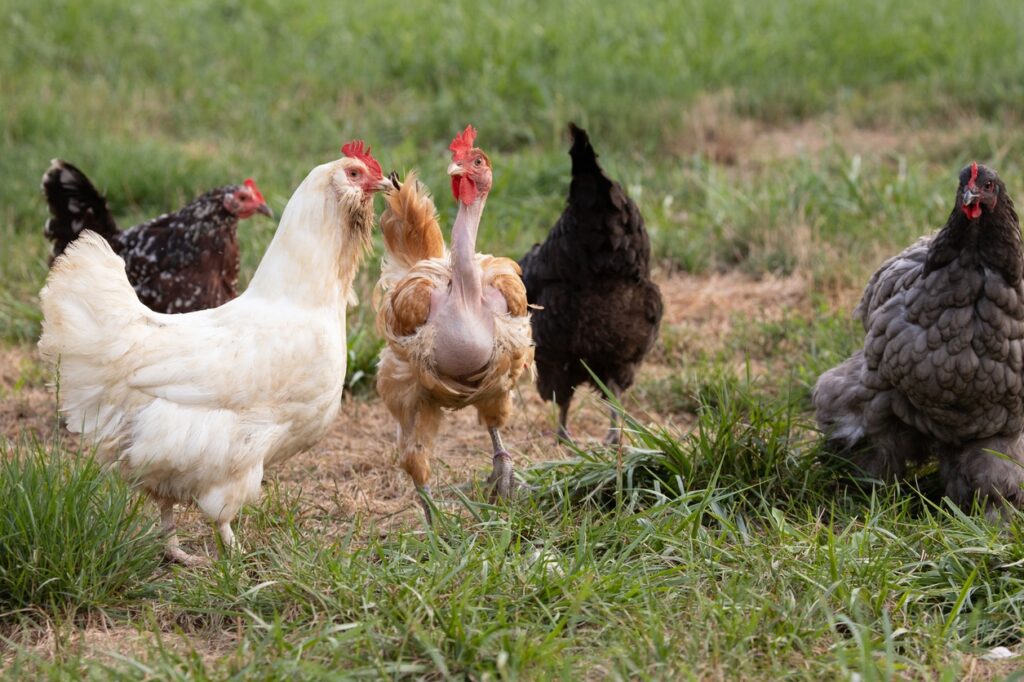
Chickens molt as a way to replace old feathers with healthier and more comfortable ones. Over time, chicken feathers become broken or dull, so molting can allow the birds to look and feel healthier as winter approaches.
Old feathers can’t properly insulate birds during cold winter months, which is why they need a fresh layer of feathers each year. Growing more vibrant feathers can also help chickens attract mates in the future.
While molting is a natural process, there are some factors that can affect the rate a chicken loses their feathers. Age, nutrition, and environment are all things that contribute to a chicken’s molting. If as chicken isn’t healthy, that could negatively impact their molting.
What if a Chicken Molts at Unusual Times?
If your chicken loses feathers at an abnormal time of year, it might not be molting. Instead, it could mean your bird isn’t healthy. Feather loss is a sign of a parasite infestation, which should be treated right away. Keeping your chicken enclosure clean can help prevent infestations.
Chickens fighting is another reason for unusual feather loss. This might be the case if the chickens are also bloody and scratched up. Birds often quarrel to determine the hierarchy of the coop, but if they start harming each other, you might need to interfere. Aggressive chickens should be separated from other animals to avoid unnecessary feather loss.
Stressed chickens or chickens not getting enough nutrients may also molt at irregular times. Make sure your chickens get a nutrient-rich diet and clean water throughout the entire year.
Tips to Help Molting Chickens
To ensure that your chickens molt at regular times and paces, you’ll need to ensure that they stay healthy and content. Here are some tips for helping chickens molt.
Provide Sufficient Protein
Like all animals, chickens need a suitable amount of protein for their life stages. As chicks, their feed should be packed with protein, but that percentage should lessen as they become adults.
Feathers are made of about 85% protein, so proper protein leads to healthy feathers. Normally, hen diets are focused on calcium to benefit the eggs, but during molting seasons, you might want to adjust their diets to be more protein-focused.
When you see your chickens starting to lose feathers, switch them to a feed with more protein. About 20% protein is ideal. High-protein diets can give chickens the nutrients they need to molt and grow back healthier feathers.
Then, once your chicken grows back their new set of feathers, you can transition back to their old diet to focus on egg-laying abilities again.
Transition Between Feeds
When changing your chicken’s food, it’s important to give them a slow transition. At the beginning of the molting process, most keepers transition them to a feed with more protein. Then, once molting is done, you can transition them back to their normal feed.
As you start to switch feeds, continue to mix in some of the old feed for seven to ten days to help your birds get used to it. The same is true for switching it back. If you change the food suddenly instead of gradually, the hens could suffer from digestive problems, which could make the molting process harder on them.
When focusing on food transitions, don’t forget to supply clean water to your birds at all times. Some keepers add apple cider vinegar to the water to benefit the chickens’ digestive systems during the food transition. Supplying regular water and water with apple cider vinegar is a good way to give your chickens options for what to drink.
Lower Stress Levels
Stress is a reason some birds molt more than they’re supposed to. It might not seem like chickens have much to be stressed about, but lots of things can startle them or make them uncomfortable, especially while they’re molting. Stress could make them molt more often or less consistently.
While chickens are molting, it’s crucial to always give them fresh bedding and handle them as little as possible. These things are good to practice on a regular basis, but they’re especially important during molting because chickens have less feathers to protect them. Thus, their skin will be more sensitive than usual.
Ensuring their needs are always met is another great way to lower chicken stress levels on a regular basis. Make sure they always have access to food and fresh water. Also, make sure their coop is well ventilated.
Molting should be like a vacation for the chickens. It’s an opportunity for them to relax and be cared for without them needing to produce eggs. So, make sure it’s as easy and comfortable for them as possible.
Caring for Molting Chickens
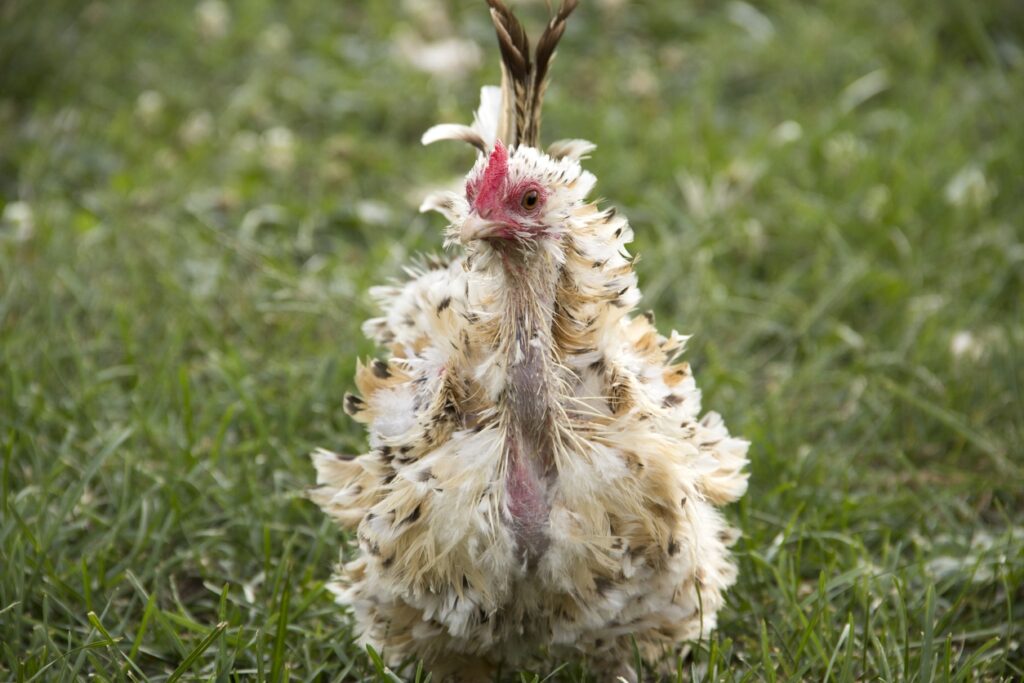
Caring for molting chickens isn’t much different than regular bird care. As usual, you should make sure they’re comfortable and have all their basic needs. The main difference is that they might be more sensitive than usual, and they’ll stop laying eggs for a little bit.
Molting isn’t something that should scare or worry you. It’s a normal part of a chicken’s life. So, as long as your chickens are well cared for, then they should molt their feathers and grow new ones with no issues. Of course, it’s always good to educate yourself on molting before your chickens go through it.
